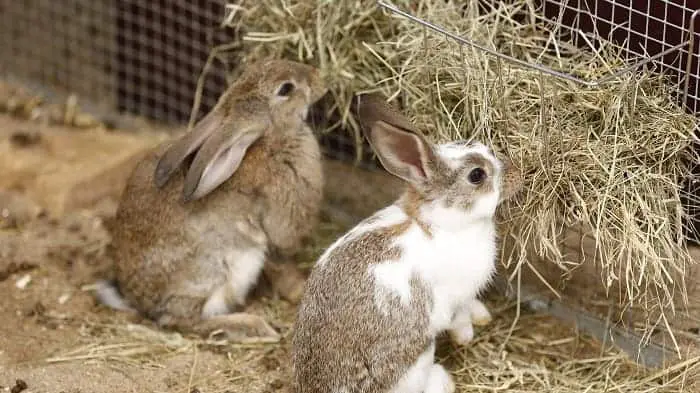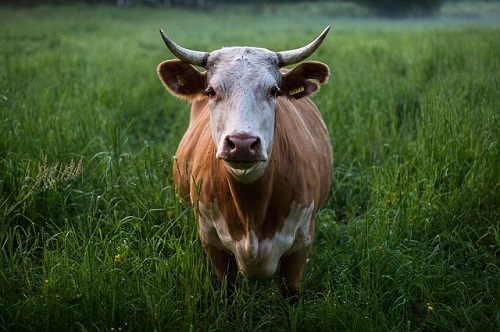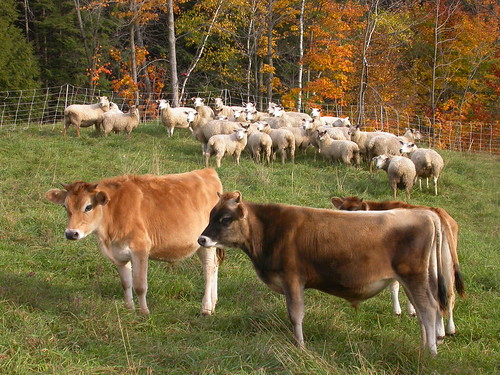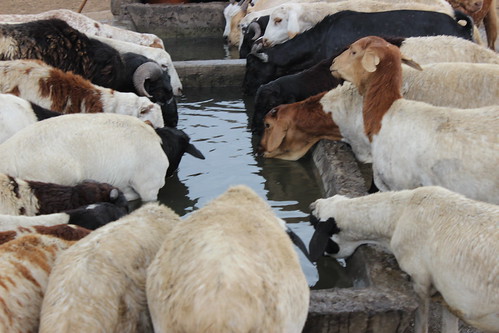Two of the main health problems in rabbits are intestinal tract problems and dental (tooth) problems. Both can be largely avoided by providing the correct or appropriate rabbit feed or diet.
Rabbits have a very delicate digestive system that can be easily altered by the proliferation of harmful bacteria due to foods high in sugars or an insufficient supply of fiber. Colic and other digestive problems are one of the leading causes of death in rabbits in captivity, but not so in the wild. A correct feed, exercise and hydration will help keep the risk of colic at bay.
Dental problems are not always obvious. Many rabbits are seeing their teeth deteriorate, both on the outside and the roots without giving visible symptoms. Unfortunately, many times, when we realize it, the problem is advanced and difficult to solve. Once again, proper nutrition, especially the consumption of large amounts of hay, plays a fundamental role in the prevention of these problems.
Feed for Rabbits
It is important to point out that rabbits are herbivores; therefore their natural feed is rich in fiber and poor in energy. Thus, rabbit feed includes the following:
Hay
This should be the basis of the rabbit diet. It is the most important food for rabbits because it is high in fiber. It must always be freely available and must never be lacking.
Hay makes up 80% of rabbits’ diet and they must also have access to fresh hay throughout the day. Hay is a great source of fiber, necessary to maintain the delicate balance of digestion of lagomorphs, the animal order to which rabbits belong. Also, because rabbits possess two pairs of continuously growing incisor teeth, they need to consume hay constantly to help them wear them down and keep them at a healthy size.
There are two types of hay: grass hay and legume hay. The first is made up of grasses such as guinea grass, elephant grass, Bermuda grass, orchard grass, maize, oat and millet plant. The second is made up of legumes such as alfalfa, clover and soybeans. Your rabbit should consume both, with a higher proportion of grass hay, because legume hay has less fiber.
Vegetables
As mentioned earlier, rabbits are herbivorous animals, so they can benefit greatly from a diet that also includes leaves and vegetables that are healthy for them. In the appropriate amounts, vegetables provide new flavors and textures, as well as nutrients, to the rabbits’ diet.
Some vegetables, such as kale, contain high levels of oxalate or calcium. As rabbits can suffer from calcium problems, it is important to consult with your veterinarian if you want to add a new rare food into the rabbit diet. Each portion of vegetables must be composed of at least 3 different kinds of vegetables, including those that are rich in vitamin A. You can rotate them throughout the week.
Granulated Feed (Pellets)
Up to 6 months of age, the pelleted feed can be provided. But in adult rabbits, it should always be offered rationed. The recommended amount is 2-3% of the animal’s weight.
Fruits
You can also give fruits to rabbits but they should be in very small portions. Fruits are foods high in calories and sugars. In the wild, rabbits can only access them for certain periods in a year.
Closing
If you are going to introduce new foods to your rabbit’s diet, it is best to do it slowly. The gastrointestinal system of rabbits is very delicate and their microorganisms need time to adapt. You can start with a portion every 3 days and observe how the rabbit body reactions to the new diet through the faeces.



